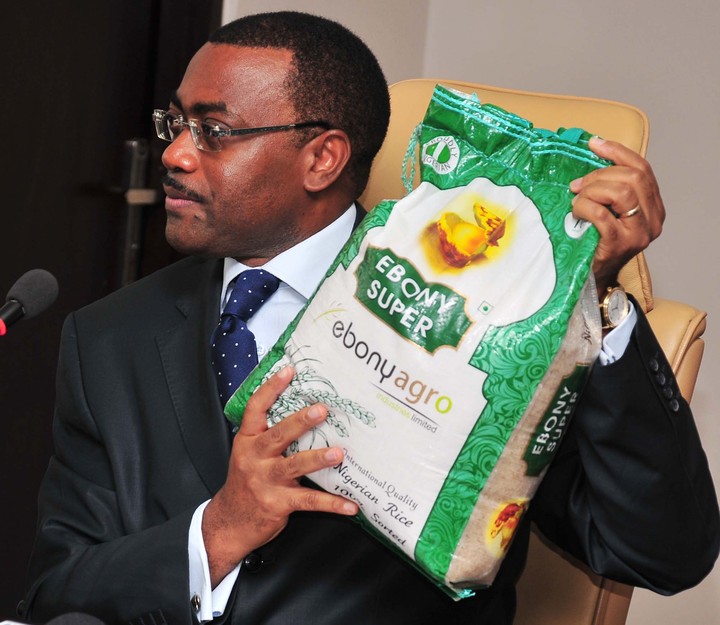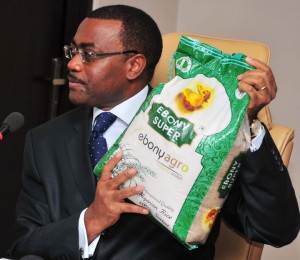By Michael Abimboye
Nigeria’s Minister of Agriculture, Akinwumi Adesina, has revealed that despite the heavy flood that affected farmlands in some parts of the country a year ago, the country has avoided a food crisis and has opened new opportunities to Nigerian farmers. The minister’s disclosure also noted that over 267,000 ha of rice land was planted by farmers in Sokoto, Zamfara, Kebbi, Bauchi, Kano, Kastina, Niger, Kogi, Jigawa and Gombe states.
This was contained in a paper delivered by the minister at the national agriculture show held 5th November in Nasarawa State.
“Our policy’s decisiveness averted a food crisis or famine that pundits predicted. We came out stronger and more resilient, to continue the drive to transform Nigeria’s agriculture, to create wealth. We turned adversity into new opportunities. We launched a major drive to move into dry season rice production – the first ever effort in Nigeria’s history. We provided high quality seeds to rice farmers, free of charge. We provided fertilizers free of charge as well, across 10 states in northern Nigeria. State governments mobilized farmers from Sokoto, Zamfara, Kebbi, Bauchi, Kano, Kastina, Niger, Kogi, Jigawa and Gombe. Over 267,000 ha of rice land was planted by farmers,” the minister said.
Dr. Adesina further revealed that over N32 billion was added as net income to farmers and farm communities as youths are gainfully employed in the midst of a dry season while raising hopes that the country will soon stop importation of rice.
The minister reiterated that with the country experiencing its lowest inflation rate since 2008, hunger rate in the country is at its lowest, cancelling international reports that 100 million Nigerians do not feed well.
“Today, as a country, we are witnessing the lowest inflation level since 2008. The higher domestic food production in the country has led to a significant drop in food price inflation. The Food and Agriculture Organization of the United Nations recognized Nigeria this year with an award for reducing by half the number of people suffering from hunger. The proportion of Nigerians suffering from hunger declined from 19.3% in 1990 to 8.5% by 2012. We are clearly feeding Nigerians with increased food output”.
He further stressed that the country is doing well with it food production as 9 million metric tons of food were produced in the last two years and the country’s food importation bill declined by N867 billion in 2012 while the nation’s agricultural export grew to 822,000 metric tons, exceeding the ministry’s target of 364,000 metric tons in 2012.



